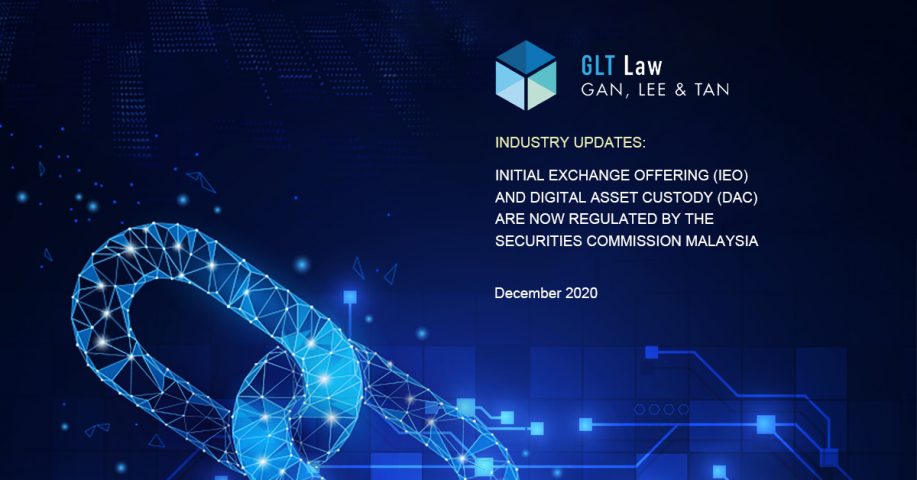- Mon-Fri 09:00-18:00
- +603 7621 4447
- [email protected]
Industry Updates: Initial Exchange Offering (IEO) and Digital Asset Custody (DAC) are now regulated by the Securities Commission Malaysia

Digital Law Firm Presents: A Digital-Focused Budget 2020
October 13, 2019
GLT Law Connects To Polymath Service Provider Ecosystem
January 6, 2021Industry Updates: Initial Exchange Offering (IEO) and Digital Asset Custody (DAC) are now regulated by the Securities Commission Malaysia
INDUSTRY UPDATES:
Initial Exchange Offering (IEO) and Digital Asset Custody (DAC) are now regulated by the Securities Commission Malaysia
With the advent of innovation in technology, the Securities Commission Malaysia (“SC”) notes a growing interest in the use cases of blockchain, blockchain-based digital assets and investing in such digital assets, both domestically and globally. In line with the SC’s mandate to promote the development of the capital markets, the SC seeks to develop a regulatory framework that will balance promoting innovation with ensuring proper safeguards to protect the integrity of the capital markets and investors’ interest.
Further to the Capital Markets and Services (Prescription of Securities) (Digital Currency and Digital Token) Order 2019 which came into force on 15 January 2019 and the revised Guidelines on Recognised Markets to incorporate a new chapter setting out the requirements for electronic platforms that facilitate the trading of digital assets on 31 January 2019, the SC has on 28 October 2020 issued the Guidelines on Digital Assets (“GoDA”) pursuant to section 377 of the Capital Markets and Services Act 2007 (“CMSA”).
Any issuance or offerings of digital tokens in Malaysia shall be registered with the SC and shall comply with amongst others, the GoDA and other relevant laws and guidelines including payment services and foreign exchange administration laws administered by the Bank Negara Malaysia (“BNM”). In line with digital currencies and digital tokens being prescribed as securities, the GoDA sets out the requirements relating to fundraising activity through digital token offering, operationalisation of initial exchange offering (“IEO”) platform and provision of digital asset custody. Notwithstanding anything in the GoDA, digital currencies and digital tokens are not recognised as a legal tender nor as a form of payment instrument that is regulated by BNM.
The GoDA will apply to:
(i) all issuers seeking to raise funds through digital token offering (“Issuer”);
(ii) all persons intending to operate an IEO platform (“IEO Operator”); and
(iii) digital asset custodian, who provides safekeeping, storing, holding or maintaining custody of digital assets for the account of another person (“DAC”).
To read the full article, please click here.


